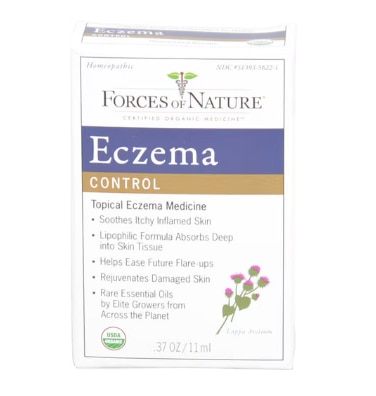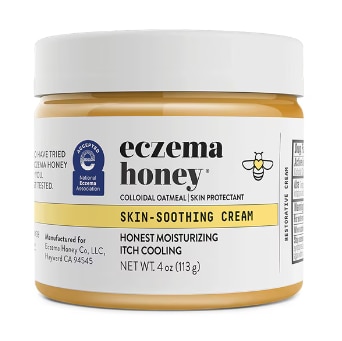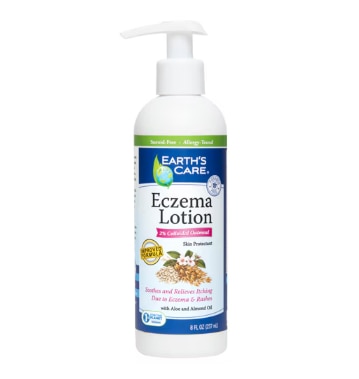Most of us take the health of our skin for granted. But that is not true for the more than 31 million Americans who have been diagnosed with eczema.
Eczema is the name given to seven different types of inflammatory skin conditions that cause a variety of uncomfortable and painful symptoms, including:
- Dry skin
- Itchiness
- Rashes
- Scaly patches
- Blisters
- Skin infections
What is eczema?
Eczema is often referred to as “atopic dermatitis,” the most common form of the disease. Atopic dermatitis affects 9.6 million children and 16.5 million adults in the U.S., according to the National Eczema Association.
In truth, nobody knows what causes eczema. It is believed to result from a combination of a person’s genes interacting with the environment.
Those with eczema often have an immune system that overreacts and causes inflammation in the body upon exposure to allergens or topical irritants.
What triggers eczema?
Despite an incomplete understanding of eczema and its origins, experts say there appear to be a number of common triggers. They include:
Dry skin
Skin that dries out often becomes rough and scaly. This can result in an eczema flare-up.
“Moisturizing twice a day is extremely important when it comes to eczema skin care,” says Dr. JiaDe (Jeff) Yu, a board-certified dermatologist at Massachusetts General Hospital in Boston and a member of the National Eczema Association‘s panel of experts.
Yu recommends moisturizing within two to four minutes of getting out of the shower or bath. He suggests avoiding thinner moisturizers such as lotion. These can be applied easily to the skin but are mostly alcohol and water, and have limited hydrating properties
“Thicker moisturizers work better,” Yu says. “Thick ointments are best, but most find it too occlusive for the summer. Therefore, I’d often opt for creams in the summer and ointments in the winter.”
Allergens
When the skin comes into contact with an allergen, it can cause a form of eczema known as allergic contact dermatitis. Rhinitis – also known as hay fever – has been associated with eczema.
Allergens that have been identified as eczema triggers include:
- Dust mites
- Pet dander
- Pollen
- Latex
Allergy testing might be necessary to determine which allergen is responsible.
Immune system issues
People who have problems with their immune system might be more susceptible to eczema. Although these immune system issues don’t actually cause eczema, they can make symptoms worse.
In addition, eczema itself can harm the immune system by breaking down the skin barrier and leaving patients vulnerable to skin conditions.
Environment
Those who live in cold, mountainous areas or places that are cold and damp may be more susceptible to eczema. The change of seasons to autumn and winter can also trigger flare-ups in some people.
Conversely, those who reside in swampy and hot areas also might find that such climates trigger eczema symptoms. These folks can be more vulnerable to flare-ups during summer.
You might reduce the impact of environmental conditions by keeping the temperature in your home at about 65 degrees Fahrenheit. Wear clothing in layers that you can add or remove to your comfort level.
Stress
Strange as it may sound, emotional stress can also trigger eczema, or at least make it worse.
“Stress often causes people to scratch and scratch, and causes more itching,” Yu says. “And so the cycle goes on and on.”
He notes that stress is difficult to quantify and varies from person to person. “Some may stress over traffic while others stress over major life events like losing a job,” Yu says.
Yu suggests combatting stress with meditation, sound therapy and other techniques.
Specific types of jobs
Contact dermatitis is a form of eczema triggered by materials and products in a person’s surroundings. Some types of jobs — including working as a hairstylist, mechanic or custodian — have been linked to a higher risk of eczema.
Coming into regular contact with dyes, cleaning products and other types of chemicals might trigger eczema.
Laundry soap, body soap and shampoo
Trying to stay clean is a good thing, but your body might react to some of the soaps that you use to clean your skin or even your clothes.
Soaps made for sensitive skin – such as fragrance-free varieties and mild versions – can help reduce this risk.
Other irritants
A variety of different types of irritants can trigger eczema. The list of such irritants is long, and it might not be obvious which irritant is causing the problem.
Irritants known to trigger eczema in some people are:
- Fragrances
- Household cleaners
- Wool
- Metals, such as nickel in jewelry, cellphones and belt buckles
- Formaldehyde
- Dyes
“There are no tests to determine what causes irritation,” Yu says. Instead, he recommends a process of “trial and error” that can help you identify the irritant that might be causing the issue.
COVID-19
People who are diagnosed with COVID-19 – whether vaccinated or unvaccinated – appear to be more susceptible to eczema.
Scientists don’t know why, but one theory is that either the stress of recovering from the virus or a heightened immune response might trigger the condition.
Ways to prevent eczema
In addition to using the tips suggested above, there are many other ways to keep eczema at bay. These range from changes in your diet to regular meditation and wet-wrap therapy, which helps to calm and rehydrate skin.
If you experience symptoms of eczema, schedule an appointment with your primary physician or a dermatologist. Medications and other therapies are available that can reduce your symptoms.
Featured Products



The post What Triggers Eczema? 9 Common Culprits – Plus, How to Prevent Flare-Ups first appeared on The Upside by Vitacost.com.


